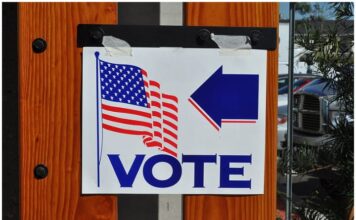WILL’s letter demands UW-Madison revise their policy immediately, adjust relevant job descriptions and assignments, and reaffirm their own statements of nondiscrimination. Failure to do so may result in legal action.
UPDATE: Since the publication of this article, UW-Madison edited their webpage to now read:
Three of these providers join eight current providers who have special expertise addressing issues that students of color often experience.
In response, WILL Deputy Counsel, Dan Lennington, said,
The Wisconsin Institute for Law & Liberty (WILL) issued a letter to University of Wisconsin System President, Tommy Thompson, and University of Wisconsin-Madison Chancellor, Rebecca Blank, warning the leaders that recently hired UW-Madison mental health counselors cannot be assigned to serve only non-white students. A recent announcement from UW-Madison said three new mental health counselors, hired in September, “will exclusively serve students of color.”
WILL Deputy Counsel, Dan Lennington, said, “Race discrimination has no place in American society. Students struggling with mental health issues should not be segregated into racial groups—they should be treated as individuals. UW should reverse course immediately.”
On September 9, 2021, the University of Wisconsin-Madison announced the hiring of nine new mental health counselors. According to the press release, “Three of these providers will exclusively serve students of color, joining eight providers already in this role.”
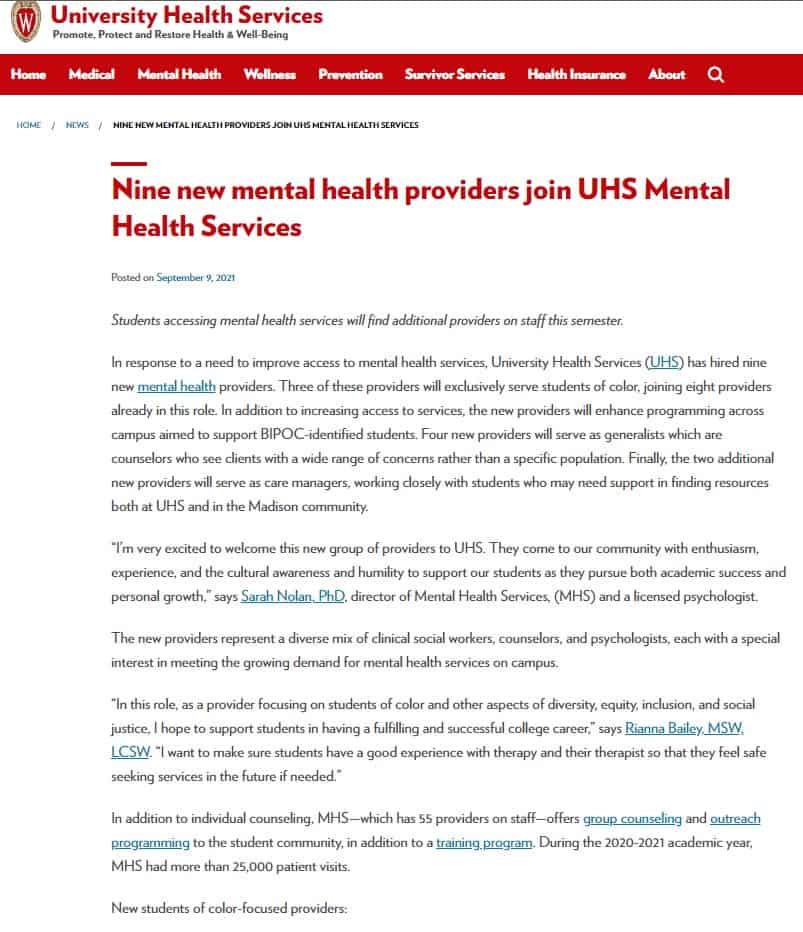
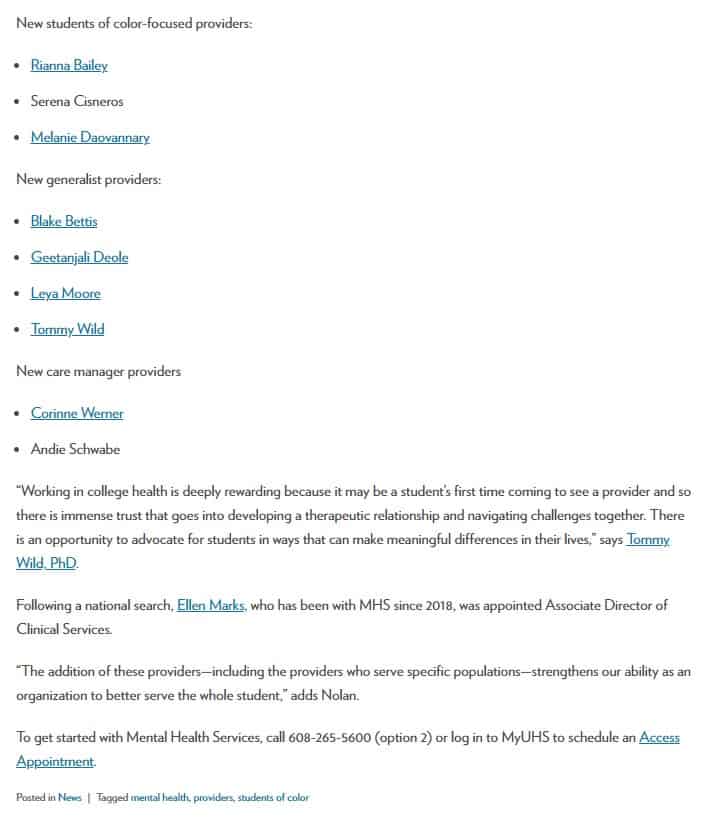
Title VI of the Civil Rights Act of 1964
The Wisconsin Constitution and the United States Constitution emphatically prohibit race discrimination by government entities like UW-Madison. Numerous federal and state laws similarly prohibit race discrimination. A state agency that receives federal funding, such as UW, may not treat students differently based on race under Title VI of the Civil Rights Act of 1964.
WILL’s letter demands UW-Madison revise their policy immediately, adjust relevant job descriptions and assignments, and reaffirm their own statements of nondiscrimination. Failure to do so may result in legal action.
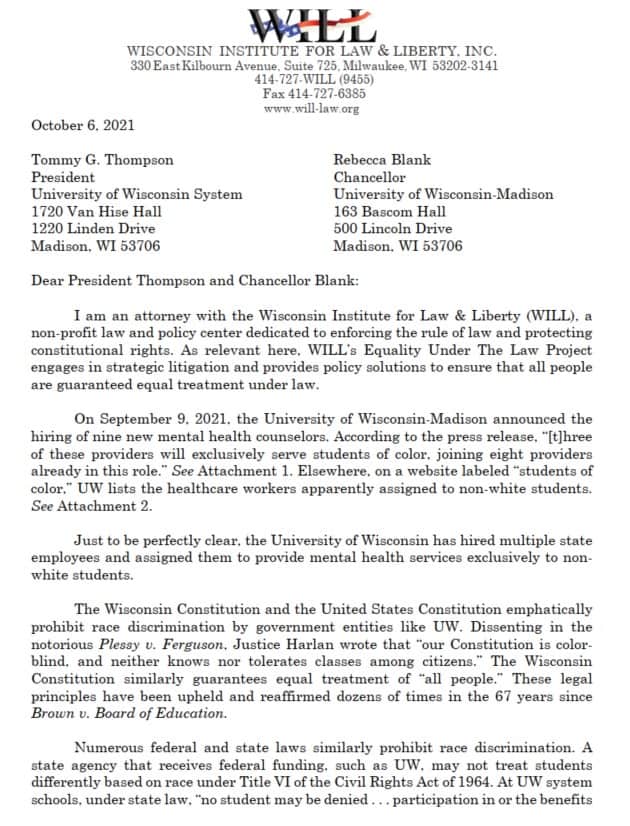
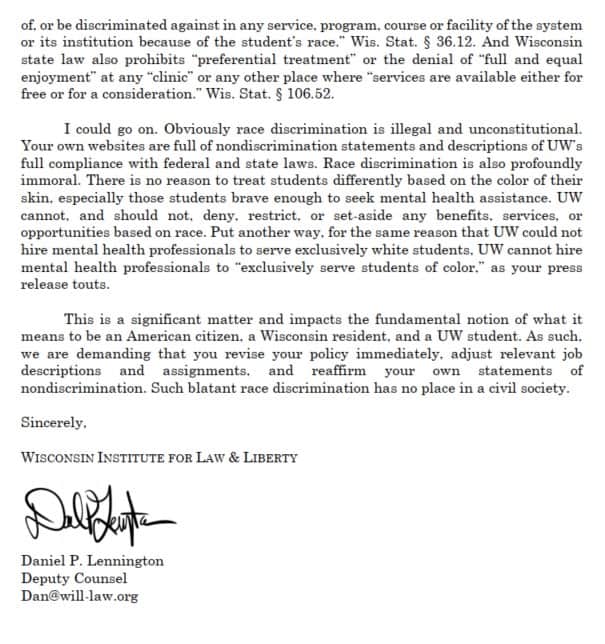
Table of Contents



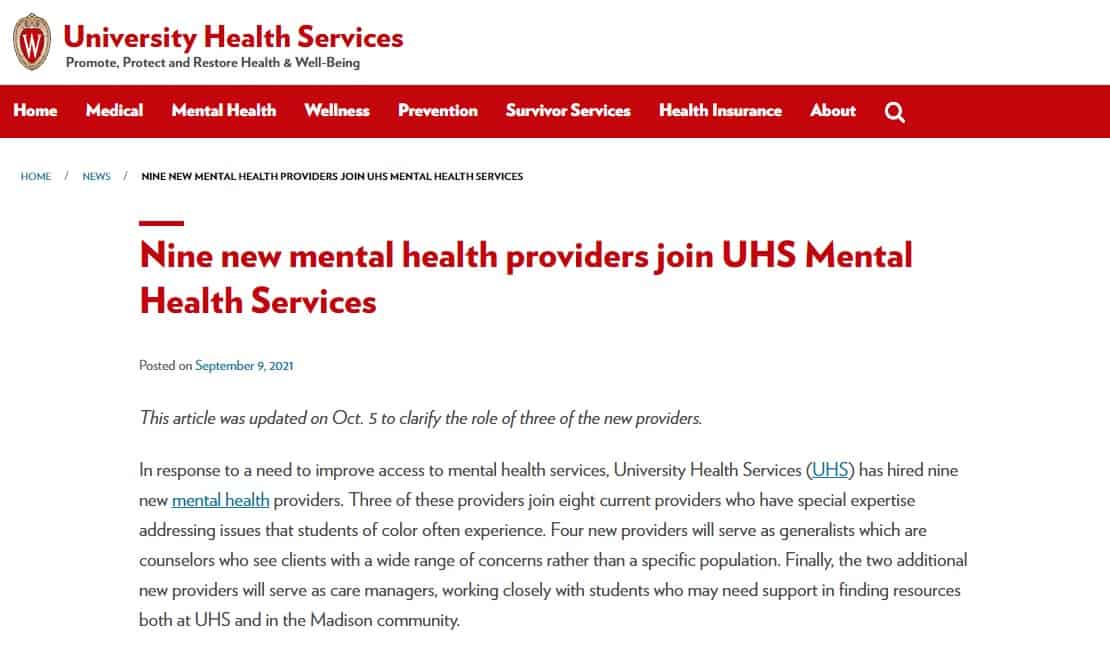






![WATCH: Elon Musk Town Hall Rally in Green Bay [FULL Video]](https://www.wisconsinrightnow.com/wp-content/uploads/2022/04/Elon_Musk_3018710552-356x220.jpg)



![The Wisconsin DOJ’s ‘Unlawful’ Lawman [WRN Voices] josh kaul](https://www.wisconsinrightnow.com/wp-content/uploads/2025/03/MixCollage-29-Mar-2025-08-48-PM-2468-356x220.jpg)







![Phil Gramm’s Letter to Wall Street Journal [Up Against the Wall]](https://www.wisconsinrightnow.com/wp-content/uploads/2025/03/gramm-356x220.png)


